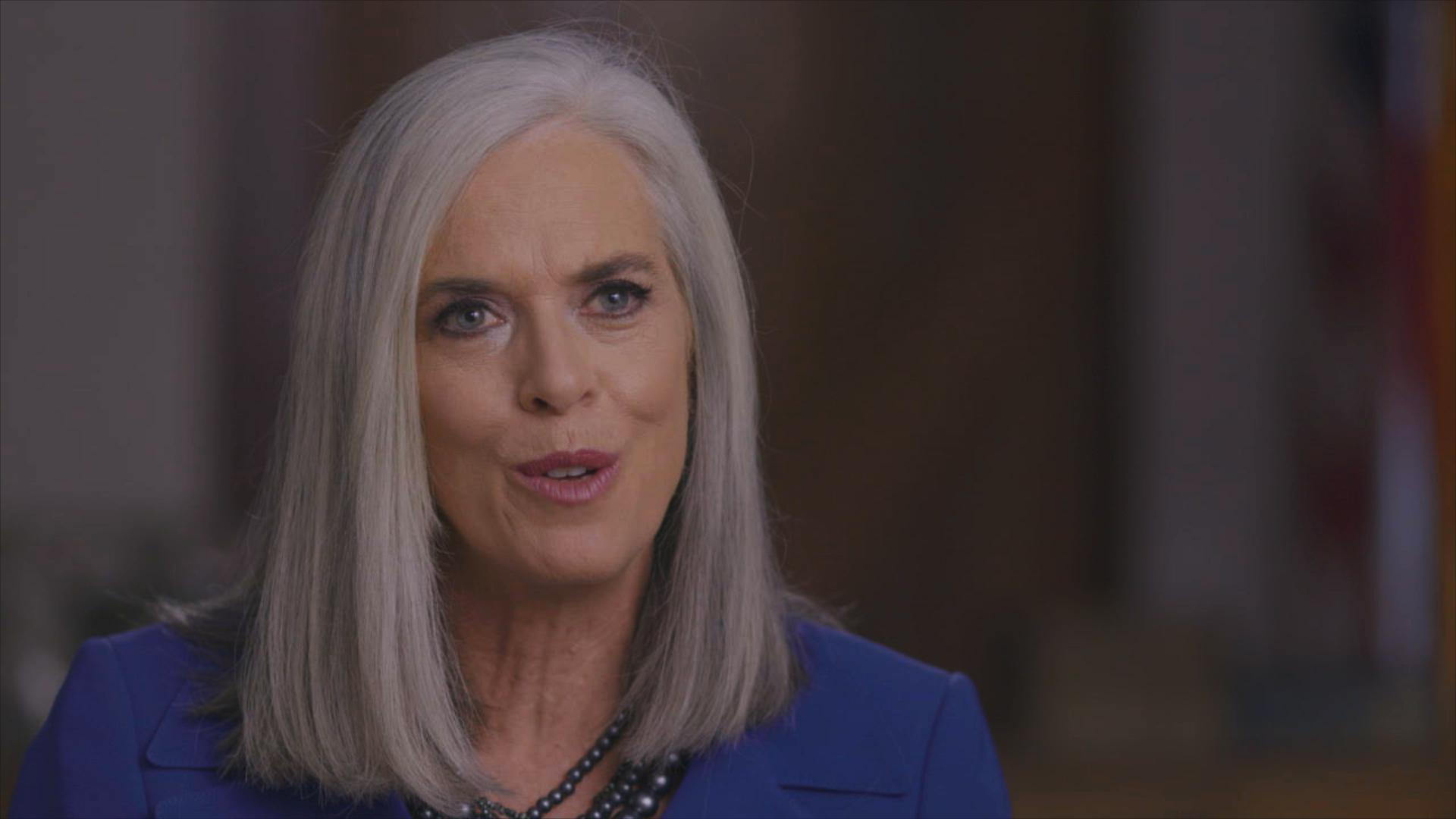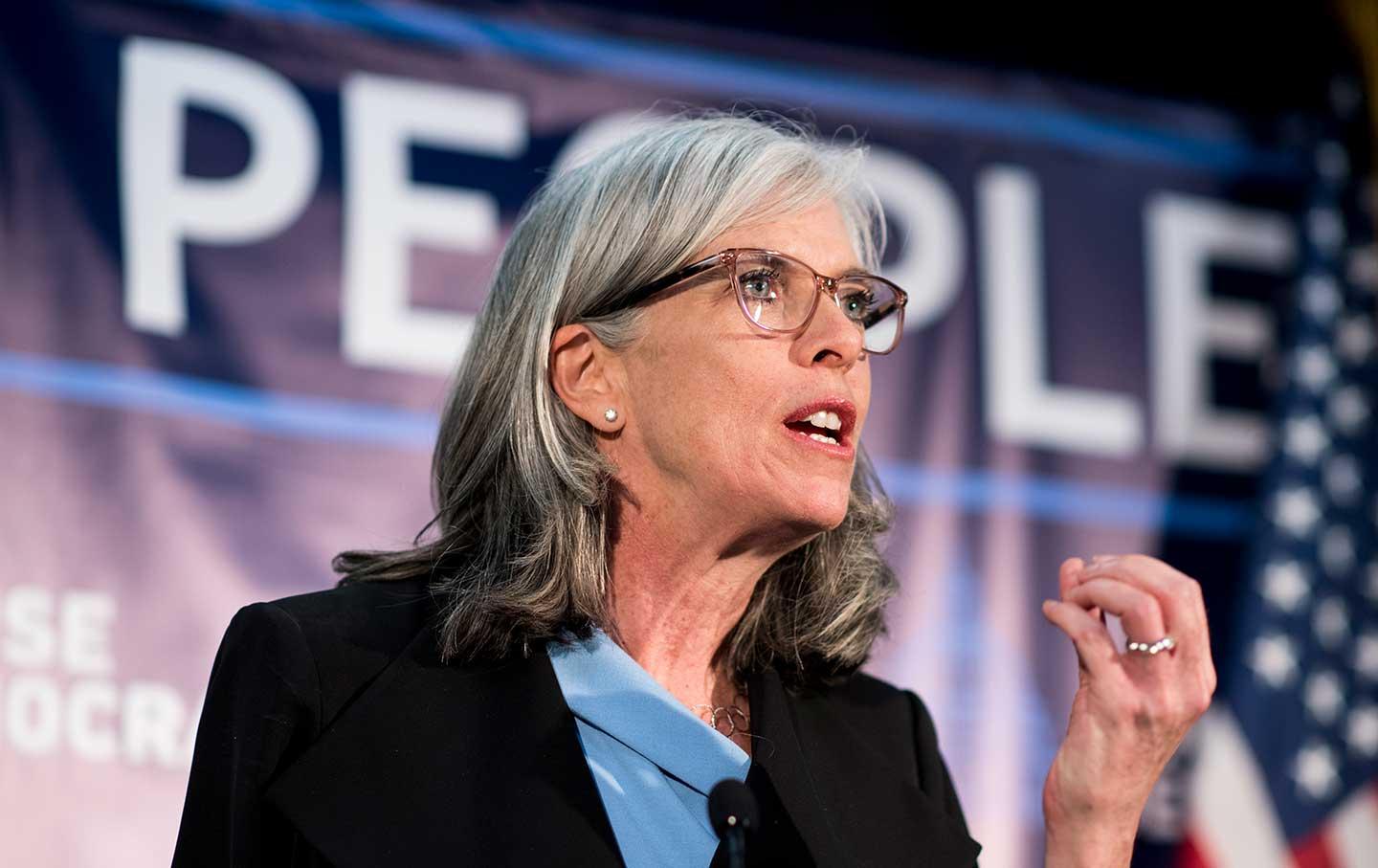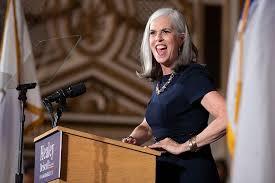🚨 JUST IN: Katherine Clark (D-MA) Just DEMANDED That Republicans Negotiate Healthcare for Illegals Before They Will Re-Open the Government
In a heated political development, Katherine Clark, Democratic Representative from Massachusetts, has issued a strong statement demanding that Republicans address healthcare for undocumented immigrants before agreeing to re-open the government. Her comments have ignited widespread debate.

Clark’s statement comes amid ongoing government shutdown discussions, highlighting the partisan divide in Congress. Democrats argue that access to healthcare for all residents, including undocumented immigrants, is a moral imperative and essential for public health and social equity.

According to Clark, “We will not reopen the government unless Republicans negotiate healthcare for those who need it most.” Her message underscores her commitment to comprehensive healthcare coverage and reflects growing Democratic frustration with Republican inaction.

The Representative stressed that access to healthcare is a human rights issue. She emphasized that excluding undocumented immigrants from essential medical services not only harms individuals but also affects broader public health outcomes nationwide.
Clark’s demand has sparked intense reactions from both parties. Republican lawmakers criticized her stance as a political maneuver, claiming it conflates immigration policy with urgent government operations, while Democrats praised her for advocating vulnerable populations.
Political analysts note that Clark’s announcement could escalate tensions in Congress. By tying government reopening to healthcare negotiations for undocumented immigrants, Democrats are increasing pressure on Republicans to address long-standing social and ethical concerns.
The timing of Clark’s statement is significant, coinciding with critical budget discussions and legislative deadlines. Lawmakers face increasing scrutiny from constituents demanding a resolution to the shutdown, while Clark’s stance signals Democrats’ unwavering commitment to healthcare reform.
Clark also highlighted that undocumented immigrants contribute significantly to the economy and communities. She argued that ensuring their access to healthcare is both a practical necessity and a reflection of American values, emphasizing fairness and inclusion.
Public response to Clark’s comments has been divided. Progressive groups applauded her bold approach, seeing it as a necessary step toward expanding healthcare access. Meanwhile, conservative commentators labeled it as overreach, insisting it could complicate bipartisan negotiations.
Healthcare for undocumented immigrants has long been a contentious issue in U.S. politics. Clark’s demand reignites this debate, bringing it to the forefront of discussions on government shutdowns, budget allocations, and federal responsibilities to vulnerable populations.
Clark’s stance aligns with the Democratic Party’s broader agenda of expanding healthcare coverage. By making it a condition for reopening the government, she emphasizes the urgency of addressing systemic inequities in access to medical care for marginalized communities.
Republican lawmakers, however, argue that tying healthcare policy to government operations is inappropriate. They claim that urgent funding measures should proceed independently, without being conditioned on immigration or healthcare debates, to prevent further disruptions in federal services.
Clark responded to criticism by stressing moral responsibility. She asserted that Congress cannot ignore the needs of those most at risk, particularly undocumented immigrants who face barriers to care. Her position reflects a growing emphasis on social justice within legislative priorities.
Analysts suggest that Clark’s approach could influence public opinion and voter behavior. By advocating for healthcare rights in a high-stakes political environment, she positions Democrats as champions of inclusion, potentially appealing to younger and more progressive constituents nationwide.
The debate also raises questions about the scope of government responsibility. Clark argues that federal obligations extend to all residents, regardless of immigration status, framing access to healthcare as both a legal and ethical duty of elected officials.
Clark’s demand has sparked discussions across social media platforms. Hashtags related to healthcare, immigration, and government reopening have trended, with supporters praising her advocacy and opponents warning that such conditions could further delay legislative resolutions.
Public health experts have weighed in on Clark’s position. Many emphasize that providing healthcare to undocumented immigrants reduces the spread of communicable diseases, lowers emergency care costs, and improves community health outcomes, supporting her policy rationale.
Democratic colleagues have rallied behind Clark, framing the issue as a test of Republican willingness to negotiate and compromise. They argue that addressing healthcare for undocumented immigrants is a non-negotiable aspect of ethical governance in the modern political landscape.
Meanwhile, Republican leaders have vowed to resist conditioning government reopening on healthcare negotiations. They insist that funding essential operations must remain separate from broader policy debates, warning that mixing issues could prolong the shutdown and frustrate citizens.
Clark’s actions underscore the ongoing ideological divide in Congress. Her insistence on healthcare negotiations highlights the challenge of balancing moral imperatives with political pragmatism, illustrating the complexities of governance in a polarized environment.
The implications of this debate extend beyond Washington. Constituents in Massachusetts and nationwide are closely watching developments, recognizing that decisions on healthcare access and government operations directly impact families, communities, and vulnerable populations.
Clark also emphasized the human cost of inaction. She described scenarios in which undocumented immigrants face life-threatening conditions without access to basic medical care, underscoring the ethical urgency behind her demand for negotiations before reopening the government.
In addition to healthcare, Clark’s stance is seen as a strategic move in the broader political landscape. By highlighting social justice and inclusion, she strengthens Democratic messaging, framing the party as responsive to underrepresented communities while contrasting with Republican priorities.
The media has extensively covered Clark’s announcement, sparking national conversations on both healthcare policy and government shutdown dynamics. Editorials, opinion columns, and news segments have debated the feasibility, ethics, and political consequences of her approach.
Experts predict that negotiations will be complex and potentially contentious. Balancing the urgent need to reopen government operations with healthcare policy reforms for undocumented immigrants will require compromise, strategic planning, and careful public communication from both parties.
Clark’s insistence on linking healthcare negotiations to reopening the government reflects broader Democratic efforts to integrate ethical considerations into legislative strategy. Her actions may set a precedent for future debates on social policy and legislative conditions.
Ultimately, Clark’s bold stance has reignited discussions about the role of government in protecting vulnerable populations. Her demand highlights the tension between political expediency and moral responsibility, emphasizing the human dimension of policy decisions.
In conclusion, Katherine Clark’s recent demand that Republicans negotiate healthcare for undocumented immigrants before reopening the government marks a pivotal moment in U.S. politics. Her advocacy underscores the intersection of ethics, policy, and legislative strategy in contemporary governance.